别人生病时,如何用英文表示“同情”和“安慰”吗?
著名医生特鲁多的墓志铭是,To Cure Sometimes, To Relieve Often, To Comfort Always. 有时治愈;常常帮助;总是安慰。
别人生病,我们虽然没有医者之术,但可以有一颗仁者之心,对生病的小伙伴,表示同情和安慰。

"I'm sorry to hear that."
听到这个我真难过。
"Actually, you don't look very well."
嗯,确实,你看起来不太好。
"You look a little pale."
你看起来有点苍白。

"Maybe you should go home and get some rest."
或许你应该回家休息一下。
"Why don't you go home and have a lie-down."
可以回家躺一会儿

"Is there anything I can do?"
有什么我能帮得上的么?
"Shall I get you an aspirin?"
用我给你一篇阿司匹林么?
你看,“别人生病表示同情”就有这么多表达方法,是不是以前都不知道?生活中有很多常用英语,我们课本上往往都学不到。
各种生病英语描述口语
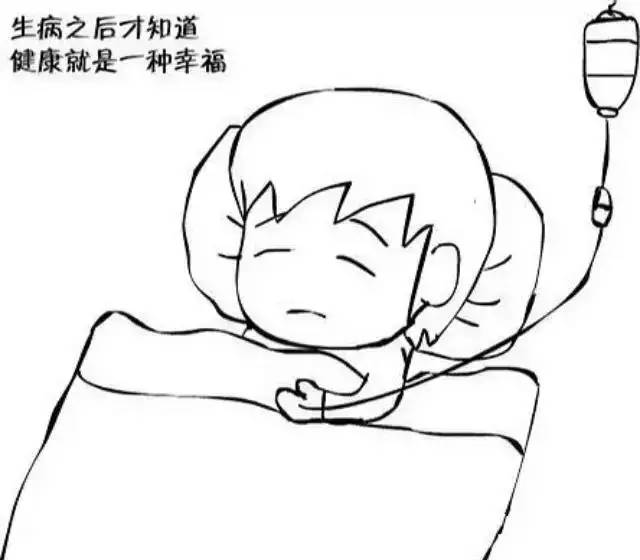
如果在国外留学、或游玩的时候一不小心生病了,希望你可以用今天学习的内容,清晰地表达自己、帮助自己,如果再遇到像宋MM这样的美女医生,那就更完美啦。
如何向医生描述自己的症状?

1、 I'm not feeling well.
我觉得不舒服。
2、 I'm feeling very bad.
我觉得很不舒服。
3、 I don't feel myself lately.
我最近感到不舒服。
4、 What shall(should) I do?
我该怎么办?
5、 Should I stay in the hospital?
我需要住院吗?
6、 The pain seems less.
我的疼痛有些减轻。
7、Since two or three weeks.
大约两三周前。
8、Is it contagious?
这病传染吗?
9、I feel dizzy(feverish, shivery, sleepy, like vomiting, nauseous itching, weak, irritated).
我感到头晕(发烧,发冷,发困,想吐,恶心,痒,虚弱,急躁)。
10、I have piles (a bad cough, a dry cough, a stomachache, a pain in my back).
我有痔疮(剧烈的咳嗽,干咳,胃痛,背痛)。
如何向医生询问病情?
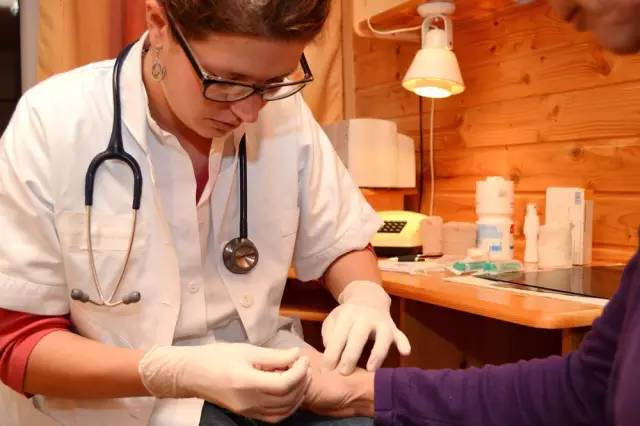
1、What kind of food should I eat? Should I have a special diet?
我应该吃什么样的饮食,我需要吃特别的饮食吗?
2、Will surgery necessary?
需要做手术吗?
3、Will it take long to recover?
很久才能恢复吗?
4、Is it right to move around and do some exercises?
可以在地上走走,锻炼锻炼吗?
5、Is it serious?
情况严重吗?
6、Is there any danger?
有危险吗?
7、What could be the cause?
可能是什么原因呢?
8、What should I do if I have another attack?
我若是再犯,该怎么办呢?
9、Isn't there any good medicine for it?
没有什么好药吗?
10、What kind of medicine is this?
这是一种什么药呢?
如何向医生征求治疗意见?
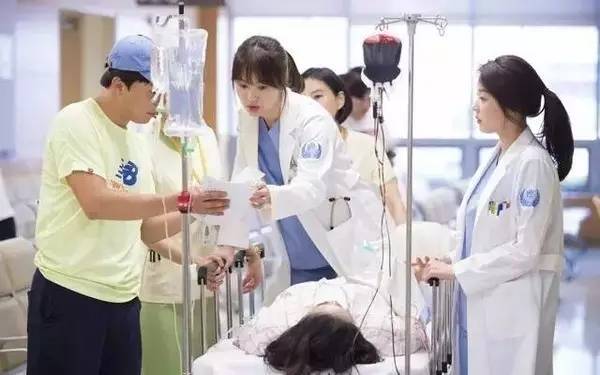
1、I hate injections, can I take the medicine orally?
我不喜欢打针,能吃些口服药吗?
2、Can it be cured?
能治好么?
3、Will it get worse?
能变坏吗?
4、What could it be?
可能是什么病呢?
5、What do you think?
你认为怎样?
6、Can anything be done for pain?
对于这种疼痛,有没有办法呢?
7、 Will it go away by itself ( soon)?
它能自然(很快)痊愈吗?
8、 When shall I come back?
我什么时候再来?
9、 Will there be a recurrence?
这病会复发吗?
10、Does this medicine have any side-effects?
这药有副作用吗?
但是,看医生可不是自说自话哦!你确定医生的话你听得懂吗?看这里保你理解医生无障碍,既让医生快速诊断你的病情,又可以节省就诊时间。
医护人员常用口语
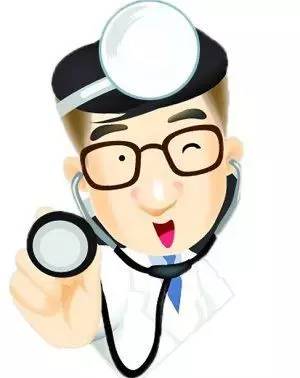
1、 What can do for you?
你有什么事?
2 、Sorry to have kept you waiting.
对不起让你久等了。
3、 What's your trouble?
你哪里觉着不好?
4 、How long have you been feeling unwell?
你不舒服多久了。
5、 What medicine did you take?
你吃过什么药?
6、 Have you taken any medicine?
你吃过什么药吗?
7、 Did you take your temperature?
你量过体温吗?
8 、Do you smoke (drink)?
你吸烟(喝酒)吗?
9、 Do you have a fever (a cough, a bad headache)?
你发烧(咳嗽,剧烈的头痛)吗?
10 、Do your want to have your tooth extracted, tooth filled, dressing changed, blood pressure checked?
你要拔牙(补牙,换药,量血压)吗?
医护人员为患者检查病情用语
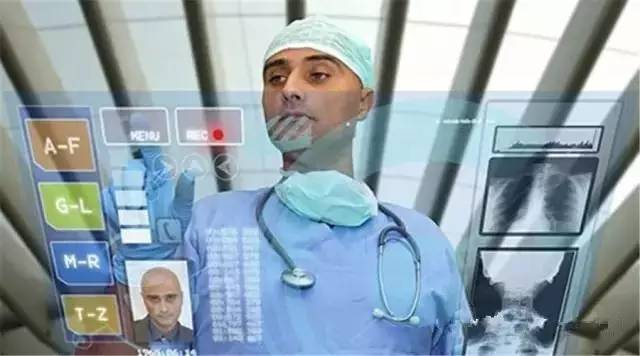
1、 Let me examine you please.
我给你检查一下。
2、 Please take off your shoes and lie down.
请脱鞋,躺下。
3、 Please lie on your back (stomach, right side, left side).
请仰卧(俯卧,右侧卧,左侧卧)。
4 、Please breathe deeply(normally).
请深呼吸(正常呼吸)。
5 、Please stick out your tongue.
请伸出舌头。
6、 Let me take your blood pressure.
我给你量一下血压。
7、 Please open your mouth and say "Ah".
请张开口说"啊"。
8、 Have you ever received any treatment before?
你以前治过吗?
9 、Has it happened before?
这种情况以前发生过吗?
10、 Are you feeling better?
你觉着好一些吗?
11、 Is the pain getting less?
疼痛减轻些了吗?
12、 How long have you had this pain?
你从什么时侯开始有这种痛的?
13、 What kind of pain is it?
是什么样的痛?
14、 Please tell me something of your past illnesses.
告诉我你过去的病史。
15、 It is not serious.
病情不严重。
16、Please don't eat anything tomorrow morning before blood test.
明早查血以前不要吃东西。
17、 You need a thorough examination.
你需要做一个全面检查。
18、 You will have to stay in hospital for several days.
你需要在医院里住几夭。
19、We think that you had better be hospitalized.
我们认为你最好住进医院来。
20、 You should stay in bed for a few days.
你需要卧床几天。
医护人员提醒患者诊疗后注意事项

1、 You should be very careful for a week or two.
这一两周内,你需要很注意。
2、 I suggest you have a course of acupuncture.
我建议你做一个疗程的针灸。
3、 I would like to transfer you to the gynecology (surgery, dermatology, urology department).
我要将你转到妇科(外科、皮肤科、泌尿科)去。
4、 I'm sure this medicine will help you a great deal.
这药对你肯定会很有效的。
5、 You will have to come here for periodical check-ups.
你需要定期来门诊检查。
6、 If you feel worse, please come back to the clinic right away.
要是你觉着病加重了,就请马上来门诊。
7、 Please wait until we get the result of the x-ray (blood test).
请等一下,我们需要看一下X线片(验血)的结果。
8、 I'm going to make arrangements for your admission.
我去给你安排住院。
9、 I suggest that you get physiotherapy treatment.
我建议你作理疗。
10、 If the trouble persists come back again.
要是情况还不见好,就请你再来门诊吧。
在国外如何看病?
出门在外,谁也免不了自己的身体会出现紧急状况,免不了头痛脑热。由于国外的医疗体制与国内的完全不同,如何在海外求医也成为了他们面临的一大难题。那么在国外如何看病?小编介绍一下步骤和方法。

小毛病尽量自己看
出国之前,可以多带些非处方药。平时掌握一些基本的医疗知识,如果是症状并不严重的感冒、头疼之类的小毛病可以去超市或药房买些药片自行解决。
▌大病最好去医院就诊
tips for you
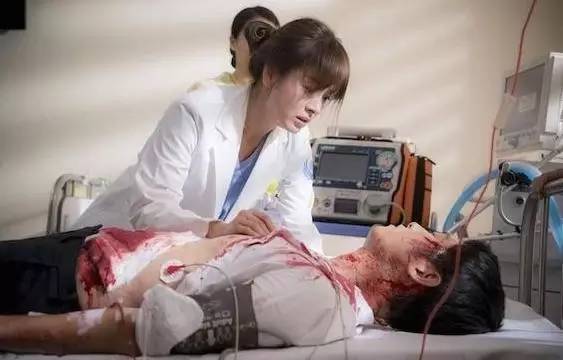
▌选择合适的医院
Selecting the most appropriate hospital
美国医院林立,对于刚到美国的留学生来说,有时不知如何去就医。一般情况下,保险公司也会指定些医院,留学生可以在这些医院就诊。同时,美国纽约、洛杉矶、旧金山等大城市的中国城里有不少中国人开设的诊所,从跌打损伤、耳鼻喉科到开刀、针灸等,一应俱全,而且收费较低。
▌看病需要提前预约
Making an appointment ahead of time
在美国看病必须要进行预约。首先,你要选择一个主要医生,在预约之前,医疗办公室可能寄给你一份新病人需要登记和填写的资料,填完资料后要及时交回。如被接受为新病人,你还需要告诉医疗保险公司所选的主要医生的名字,这样保险公司才会付费。其次,一旦你确定了预约时间,你就必须准时,不能迟到,如果因为某种原因不能前往,必须在24小时前打电话取消或重新预约,否则将被罚款。再次,就医时必须携带身份证件和医疗保险卡。
▌遇到意外及时求救
Calling for help immediately when encounters danger
如果不幸遭逢意外,诸如摔伤、碰伤、割伤、枪伤、车祸及心脏病突发等,需要有人施以援手时,留学生应该立刻拨打911紧急救难电话,呼叫救护车。只要拨通该号码,即使不说话,警车和救护车也会及时赶到。
▌费用可以讨价还价
The medical fee can be bargained with
在美国,很多医疗账单都有讨价还价的余地。第一,你一定要主动开口问,一般来说,如果病人到医院的财政处亲自讨价的话,通常来说就能拿到个七折。第二,在治疗的过程中,你可以建议医生选择低价方式。第三,如果你要找人调整账单时,可以找医疗办公室负责人。第四,选择现金结账可以拿到较好的折扣。第五,仔细查账单、保险单,要像侦探一样,对保险单和医疗账单上面的每一条都清清楚楚。
▌买医疗保险很重要
It is very important to buy health insurance
如果没有医疗保险,在美国的一次看病治疗就能让留学生们在财务上吃紧。一般来说,美国的高校都有留学生保险制度,留学生可以在入学的时候购买医疗保险,保费一般在每年300-600美元不等。由于在校内买的保险局限比较大,往往只包括一些常规医疗的赔偿,而且赔偿的金额也不会太大。万一在美国患上大病,学校的基本医疗保险无法补偿所有的费用,所以对于有特殊需求的留学生来说,最好到校外购买额外的附加险。
(1) 一般病情:
1. He feels headache, nausea and vomiting.
他觉得头痛、恶心和想吐。
2. He is under the weather.
他不舒服,生病了。
3. He began to feel unusually tired.
他感到反常的疲倦。
4. He feels light-headed.
他觉得头晕。
5. She has been shut-in for a few days.
她生病在家几天了。
6. Her head is pounding.
她头痛。
7. His symptoms include loss of appetite, weight loss, excessive fatigue, fever and chills.
他的症状包括没有食欲、体重减轻、非常疲倦、发烧和发冷。
8. He feels exhausted or fatigued most of the time.
他大部份时间都觉得非常疲倦。
9. He has been lacking in energy for some time.
他感到虚弱有段时间了。
10. He feels drowsy, dizzy and nauseated.
他觉得昏昏欲睡,头晕目眩和想吐。
11. He feels as though everything around him is spinning.
他感到周围的东西都在打转。
12. He has noticed some loss of hearing.
他发觉听力差些。
13. She has some pains and itching around her eyes.
她眼睛四周又痛又痒。
(2) 伤风感冒:
1. He has been coughing up rusty or greenish-yellow phlegm.
他咳嗽带有绿黄色的痰。
2. His eyes feel itchy and he has been sneezing.
他眼睛发痒,而且一直在打喷嚏。
3. He has a fever, aching muscles and hacking cough.
他有发烧,筋骨酸痛和常常咳嗽。
4. He coughed with sputum and feeling of malaise.
他咳嗽有浓痰,而且觉得很虚弱。
5. He gets a cold with a deep hacking cough.
他伤风咳嗽。
6. He has a headache, aching bones and joints.
他头痛,骨头、关节也痛。
7. He has a persistent cough.
他不停地在咳。
8. He has bouts of uncontrollable coughing.
他一阵阵的咳嗽,难以控制。
9. He has hoarse and has lost his voice sometimes.
他声音嘶哑,有时失声。
10. He has a sore throat and a stuffy nose.
他嗓子疼痛而且鼻子不通。
11. His breathing is harsh and wheezy.
他呼吸时,有气喘似的呼哧呼哧作响。
12. He has a stabbing pain that comes on suddenly in one or both temples.
有时突然间太阳穴刺痛。
13. He has a runny nose, sneezing or a scratchy throat.
他流鼻水,打喷嚏和喉咙沙哑。
(3) 女性疾病:
1. She has noticed one lump in her breast.
她发觉乳房有个肿块。
2. There is a hard, swollen lump on her right breast.
她右乳房有肿块。
3. Her left breast is painful and swollen.
她左乳房疼痛且肿大。
4. She has heavy bleeding with her periods.
她月经来的很多。
5. Her vaginal discharge is white or greenish-yellow and unpleasant smelling.
她阴道分泌物带白色或绿黄色,而且气味不好。
6. She has noticed occasional spotting of blood between periods.
在月经来的前后,她有时也发觉有滴滴达达的流血。
7. She has some bleeding after intercourse.
性交后有出血。
8. She feels some vaginal itching.
她感到阴部发痒。
9. She has painful periods and abnormal vaginal discharge.
她月经来时疼痛,而且阴道有不正常的分泌物。
(4) 手脚疾病:
1. His both hands and feet ache all over.
他两手两脚都很酸痛。
2. He has pain on the sole of his feet.
他脚底很痛。
3. There is a wart-like lump on the sole of right foot.
我右脚底有个像肉疣般的硬块。
4. His ankles look puffy and they pit when he presses them with his finger.
他的足踝好象肿了,用手按,就有小坑痕。
5. The pain in his left foot is accompanied by redness and swelling.
左脚酸痛,并有红肿。
6. The joints near his fingernails and knuckles look swollen.
指头和指节旁边的关节,似乎有肿大。
7. He has numbness and tingling in his hands and fingers.
他的手和指头感到麻木和刺痛。
8. His legs become painful following strenuous exercise.
激烈运动后,他的腿就痛。
9. His knee is misshapen or unable to move.
他的膝盖有点畸形,也不能动。
10. There are some swellings in his armpit.
他的腋窝肿大。
11. He is troubled with painful muscles and joints.
他的筋骨和关节都痛。
12. She is troubled by the pains in the back and shoulders.
她的后背和肩膀都痛。
13. His knee has been bothering him for some time.
他的膝盖不舒服,已有一段时间了。
(5) 睡眠不好:
1. He is sleeping poorly.
他睡不好。
2. He has difficulty in sleeping, inability to concentrate.他不易入睡,也难集中精神。
3. It is usually hard for her to fall asleep when she goes to bed at night.
她晚上就寝,很难入睡。
4. He wakes during the night or early morning and finds it difficult to fall asleep again.
他晚间或清早醒来后,再也不能入睡。
5. He has nightmares occasionally.
他有时做噩梦。
(6) 男性疾病:
1. He urinates more frequently than usual.
他小便比平时多。
2. He has difficulty controlling his bladder.
他很难控制小便。
3. There are some lumps on his testicles.
他的睪丸有些硬块。
4. He has had burning or pain when he urinates.
他小便时感到发烫和疼痛。
5. He is passing less urine than usual.
他小便比平时少。
6. He has had painless swelling in his scrotum.
他的阴囊有不痛的肿大。
7. He feels lack of interest in sex.
他自觉对性的兴趣大减。
8. He has difficulty starting his urine flow.
他小便不畅通。
9. His urine stream is very weak and slow.
他小便流动得很慢很弱。
10. He dribbles a little urine after he has finished urinating.
他小便后,还会有少量零星地滴下。
11. He has had some discharge from his penis.
他的阴茎排出一些流脓。
12. His urine is cloudy and it smells strong.
他的小便混浊,而且气味不好。
13. He has a dull heavy ache in the crotch.
他的胯部感到隐痛。
14. He has a small leakage of urine when he coughs or sneezes.
他咳嗽或打喷嚏时,会有点泄尿。
15. He has trouble urinating.
他小便有困难。
(7) 呼吸方面:
1. His breathing has become increasingly difficult.
他呼吸越来越困难。
2. He has to breathe through his mouth.
他要用口呼吸。
3. He is short of breath, even when he has not been exercising, he is breathless.
他喘气;即使不运动,他也是上气不接下气。
4. His cough is more like wheezing.
他的咳嗽有呼哧呼哧的响声。
5. His cough is dry, producing no phlegm.
他是干咳,没有痰。
6. He has coughed up blood.
他咳嗽有血。
7. His nose stuffed up when he had a cold.
他感冒时鼻子就不通。
8. He coughs up a lot of phlegm (thick spit) on most days.
他多半时间咳出浓浓的痰。
9. He has a feeling of tightness in the chest or a feeling that he is suffocating.
他胸部觉得闷闷的,好象透不过气来。
(8) 口腔毛病:
1. He has pain in his teeth or jaw.
他的牙齿和下巴疼痛。
2. He has some problems with his teeth.
他牙齿有问题。
3. The tooth hurts only when he bites down on it.
他咬东西时,牙齿就痛。
4. His gums are red and swollen.
他的牙床红肿。
5. His tongue is red and sore all over.
他的舌头到处红和痛。
6. His breath smells bad and he has a foul taste in his mouth.
他口里有怪味。
7. His gums do bleed.
他牙床有出血。
8. He has some sore swellings on his gum or jaw.
他的牙床和下巴肿痛。
9. He has sore places on or around the lip.
他的嘴唇和周围都很痛。
10. There are cracks at the corners of his mouth.
他的嘴巴角落破了。
11. There are some discolored areas inside on his tongue.
他舌头里边有些地方颜色怪怪的。
(9) 肠胃毛病:
1. He has a bloated, uncomfortable feeling after meal.
他饭后肚子觉得胀胀的,很不舒服。
2. He has bouts of abdominal pain.
他有一阵阵的肚痛。
3. He feels bloated in his abdominal area.
他感到肚子胀胀的。
4. The pain is mainly in the lower (upper) right part of the abdomen.
痛是在肚子下半部。
5. He has nausea and vomiting.
他有恶心和呕吐。
6. It is difficult or painful for him to swallow.
他吞下食物时会痛。
7. He has passed more gas than usual.
他放…比平常多。
8. He has been constipated for a few days.
他便秘了好几天。
9. He suffers pains when he moves his bowels.
他大便时很痛。
10. He has some bleeding from his rectum.
他的肛门出血。
11. He has noticed some blood in his bowel movements.
他发觉大便时有些血。
12. His bowel movements are pale, greasy and foul smelling.
他大便呈灰白色,含油脂的恶臭。
13. His bowel movements are grey (or black) in color.
他的大便呈灰白色。
14. He has trouble with diarrhea.
他拉肚子。
(10) 血压&感官:
1. His blood pressure is really up.
他的血压很高。
2. High blood pressure is creeping up on him.He has noticed frequent urination, increased thirst and unexpected tireness.
他发觉常常小便,非常口渴和更加疲倦。
3. It is a chest pain that gets worse when he bends over or lies down.
他弯腰或躺下时,胸部更痛。
4. He has noticed excessive sweating and unexplained tireness.
他体会到过度的出汗和难以解释的疲倦。
5. He has a sharp pain in one area of his spine.
他的脊椎某部位刺痛。
6. He has pain in other joints including hip, knee and ankle.
其它关节疼痛包括臀部、膝盖和脚踝。
7. His eyes seem to be bulging.
他的眼睛觉得有点肿胀。
8. He has double vision.
他的视线有双重影子。
9. He feels there is a film over his eyes.
他觉得眼里有种薄膜似的东西,挡住视线。
10. His vision in the right eye blurred.
他右眼视线模糊不清。
11. He has had some earaches lately.
他近来耳朵有点痛。
我们为读者提供各类资讯外,也为大家提供各类新加坡留学等资讯,以及如何在新加坡中英文业余学习(课程可申请政府津贴),学习雅思,提升学历等
我们还专设马来西亚碧桂园--森林城市一日游和澳洲陪读和澳洲留学业务
欢迎电话:84258441,添加微信:jasonjuven
童老师
扫二维码关注我的文章





















评论